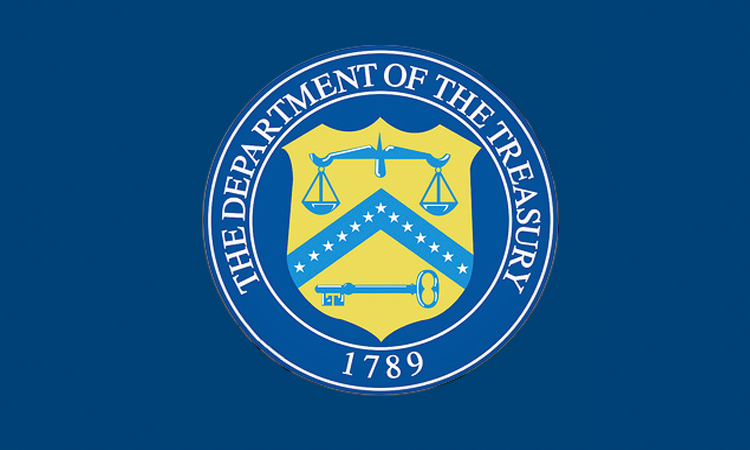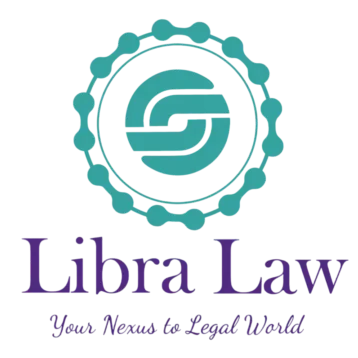Sanctions/OFAC related services

Our services:
- Specific License Application
Certain activities and transactions that are generally prohibited by U.S. sanctions laws may be allowed if you receive authorization from the Treasury Department’s Office of Foreign Assets Control (OFAC). OFAC offers two types of licenses: general and specific.
A general license acts as an exemption to the broad OFAC sanctions regulations, allowing certain transactions and activities that would otherwise be prohibited under the relevant sanctions program. On the other hand, specific licenses are issued following a formal application process to OFAC. When granted, a specific license allows the applicant to engage in particular activities or transactions that would otherwise be in violation of the applicable sanctions regime.
Unlike general licenses, a specific license requires a written application and is limited to the person or entity to whom it is issued, and it can only be used for the specific purposes authorized by the license. Applications for specific licenses can be submitted by mail or through OFAC’s online portal. Once the application is submitted, OFAC reviews the request and any supporting documentation to determine whether to grant the specific license.
- SDN (Specially Designated Nationals) List Removal
Getting removed from the Office of Foreign Assets Control (OFAC) SDN List is a complex and challenging process. Attorneys who are specialized in and stay current with OFAC sanctions list removals, may be the best choice to represent your interests in this crucial matter.
For most individuals and companies, being designated as an SDN carries severe and devastating consequences. Those involved in international trade or with financial connections to international entities, particularly banks, are at significant risk of losing access to their personal or business assets and funds. Businesses across various industries may quickly deny you a wide range of services, close your accounts, and move to block or freeze any property or funds they hold on your behalf.
Submitting a Request for Administrative Reconsideration is generally the initial step in the process of seeking removal from OFAC’s SDN List. Also known as a Petition for Removal, this document is likely the most critical submission you will make to OFAC in your case. The petition typically includes background information, legal and policy arguments, and a well-reasoned analysis explaining why the designated individual or company should be removed from the SDN List. After you submit this petition, OFAC may send you or your company a follow-up questionnaire. Whether they do so depends on the information they have in relation to the details and arguments presented in your petition.
Whether you have already submitted a petition to OFAC for removal from the SDN List or are planning to do so, SDN List Removal Lawyers can provide valuable guidance. They can advise you or your company on what should be included or added to the petition, the specific arguments to make, and any recommended changes that could improve your chances of being removed from the list.
- Unblocking Application
A bank may block funds involved in a wire transfer if it determines that doing so is necessary to comply with U.S. economic sanctions regulations enforced by the Department of the Treasury’s Office of Foreign Assets Control (OFAC).
OFAC sanctions target parties that are allegedly involved in activities deemed contrary to U.S. national security and foreign policy interests. Under OFAC regulations, property (typically referring to funds) must be blocked when designated individuals, entities, or foreign governments have an interest in that property.
This means that if a designated or blocked party has a stake in property that falls under U.S. jurisdiction or comes into the possession or control of a U.S. person, the property must be blocked or frozen. A bank may also block the funds if it believes the transaction violates U.S. sanctions or may lead to legal complications.
These funds are then required to be held in a blocked account until a license is granted to release them.
The procedure for unblocking funds is outlined by OFAC under 31 C.F.R. § 501.806. An unblocking application is a license request seeking permission to release your blocked funds. The process of providing information and submitting the application via OFAC’s online portal is similar to that of a specific license application. Once submitted, OFAC will review the transaction and the application to determine whether the blocking was justified. Providing proof to OFAC can be a challenging and exhausting process. When a mistaken identity leads to the blocking, the application must include all relevant information to demonstrate to OFAC that no party involved in the transaction is subject to U.S. sanctions to the extent that would make the transaction illegal.
Given the complexity of the situation, it is often necessary to enlist the help of an experienced OFAC attorney. An attorney can thoroughly analyze the related contracts and documents of the transaction, ensuring that the strongest possible arguments are presented to support your request for the release of funds.
- Administrative subpoena
The Office of Foreign Assets Control (OFAC) may issue administrative subpoenas to individuals, companies, or organizations as part of its efforts to enforce U.S. sanctions. If you or your organization has received an OFAC administrative subpoena, it means the agency has already initiated a preliminary sanctions investigation and is seeking additional information about potential sanctions violations.
An OFAC administrative subpoena typically involves transactions with designated countries or entities and generally requests records related to sanctions compliance, which are legally required to be maintained for at least five years. In some cases, the subpoena may be overly broad, making it burdensome to gather and provide all the relevant documents. In such instances, it may be possible to contact the Enforcement Officer assigned to your case to negotiate a narrower scope of information requested by OFAC. However, this process can be particularly challenging, especially if your organization lacks a compliance program. Consulting an experienced OFAC Administrative Subpoena Lawyer is the best first step in formulating a response to OFAC.
- Compliance Counseling
Navigating the complex landscape of U.S. sanctions regulations requires expert guidance. Sanctions Compliance Counseling is designed to help individuals, companies, and organizations understand and adhere to the intricate requirements set forth by U.S. economic sanctions laws administered by the Office of Foreign Assets Control (OFAC).
Our counseling services provide comprehensive support in developing and implementing effective compliance programs tailored to your specific needs. We assist in assessing your current practices, identifying potential risks, and ensuring that your operations align with OFAC regulations. This includes advising on the best practices for monitoring transactions, maintaining required records, and addressing any compliance gaps.
Whether you are establishing a new compliance program or enhancing an existing one, our experienced OFAC attorneys can provide valuable insights and strategies to mitigate risks and ensure regulatory adherence. We also offer guidance on how to respond to OFAC inquiries and manage compliance-related issues effectively.
Partnering with us for sanctions compliance counseling helps ensure that your business remains in full compliance with U.S. sanctions laws, thereby minimizing the risk of violations and potential penalties.
- OFAC Litigation
If you have received an administrative subpoena from the Office of Foreign Assets Control (OFAC) or are facing an investigation or enforcement action by OFAC, you may need the assistance of an experienced OFAC sanctions and federal litigation attorney in Washington, DC. Such an attorney can manage your case and communicate with the agency on your behalf.
There are several situations where an OFAC sanctions matter might require federal court intervention. For example, if OFAC delays processing your request, you might choose to file a lawsuit in federal court. Additionally, if you receive an unfavorable determination on a specific license application, you may need to appeal the decision in federal court to present your case before a judge. Furthermore, if you face a substantial OFAC enforcement action involving heavy fines for alleged violations of U.S. sanctions regulations, legal representation can help you challenge or reduce the penalty. Appeals in federal court often face significant challenges because U.S. courts typically defer to the decisions made by federal agencies like OFAC. OFAC does not offer a formal appeals process but may reconsider a decision if there is good cause. Examples of “good cause” include providing new information not previously disclosed to OFAC or demonstrating a change in circumstances since the last submission. An OFAC decision is deemed a final agency action, which means you can request judicial review in federal court. Under the Administrative Procedure Act (APA), you must demonstrate that OFAC acted in an “arbitrary and capricious” manner. However, courts generally defer to OFAC’s expertise in decision-making, making APA lawsuits for judicial review particularly challenging. Additionally, OFAC does not permit you to request reconsideration of its decision while simultaneously pursuing an appeal in federal court. It is crucial to carefully evaluate your options with the guidance of a Washington, DC, OFAC Litigation Attorney.
- Voluntary Self-Disclosure (VSD)
An individual or organization may submit a voluntary self-disclosure (VSD) to OFAC if a sanctions violation has occurred or is suspected to have occurred. A VSD can also be filed if you or your organization engaged in a transaction potentially related to a sanctions target. The purpose of a VSD is to demonstrate good faith by proactively reporting a potential sanctions violation. If OFAC determines that a violation did occur, the voluntary self-disclosure will be viewed favorably when OFAC calculates any penalties.
Before submitting a voluntary self-disclosure to OFAC, it is crucial to confirm whether the transaction indeed constitutes a violation. Begin by reviewing the sanctions regulations, including statutory authorities, general licenses, and relevant interpretative guidance, to determine if a violation occurred. If there is any uncertainty, it is best to consult an experienced Washington DC Voluntary Self Disclosures Attorney for a thorough evaluation. Following the initial VSD, your attorney will support you through internal investigations and audits. This process involves interviewing relevant personnel and compiling necessary documents to address the conduct or transaction in question.
If you are contemplating self-disclosing a potential violation of U.S. sanctions to OFAC, we strongly advise consulting with an OFAC attorney specializing in voluntary self-disclosures and OFAC law.
Compliance Made Easy
Navigating Sanctions with Confidence

